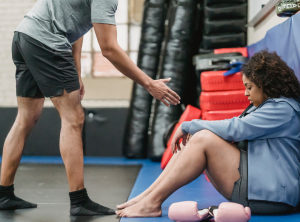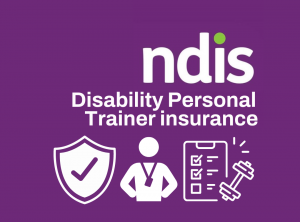Personal training can be a very broad term, so it’s important that you know exactly what Personal Trainer means. One of the primary concerns for any Personal Trainer is insurance coverage, especially if clients participate in competitive sports or recreational activities during their sessions. Without liability insurance for Personal Trainers, you may not be covered in the event of an accident or injury. There are many concerns people have when they’re trying to figure out whether an activity is covered by insurance. On this blog, we have listed some common ones.
What personal training activities does an insurance company not cover?

Inadvertently working outside your scope may result in you not having insurance, even though you are under your personal training insurance policy. You would most likely not find this out until you have filed and made a claim. Here are the top seven ways that people often work outside their scope.
Personal Trainer nutrition insurance

Your fitness insurance doesn’t cover the cost of providing precise meal plans or specialised nutritional advice. For more information, refer to what is covered in your Fitness Certificates III and IV.
Martial arts and boxing insurance
Most personal training insurance companies will not cover you for contact boxing, even if the intention was for it to be non-contact boxing. This means that if the worst happens, like an injury. For example, if a trainer says “duck and weave,” and the client didn’t duck, the trainer would hit the client and would cause a severe injury. Many insurance companies may not cover you or any Personal Trainers for such incidents. So, with your insurance, be aware of where the grey area of boxing fitness and boxing fighting exists.
Because if the worst happens, like an injury, you’ll likely have no coverage at all. Make sure to research what types of activities are covered under your policy before getting started so as to prevent any problems down the road when injuries occur because people were unable to get treatment due to their medical history or lack thereof. As a result, many martial arts instructors may find themselves unprotected against accidents while teaching certain skills, which could lead to their being unable to perform them.
NDIS disability Personal Trainer Insurance

If you are working with people with disabilities, whether funded by the NDIS or not, your insurance company may deem them to be a special population, or they may deem it to be disability support work and not personal training. And as such, your insurance policy may not cover you to train a person with a disability. Ultimately, ensure that you will get coverage for every single customer you’re training.
Prenatal and postnatal personal training insurance
Certain insurance companies do not cover pregnancy-related services, especially if a client is pregnant. Make sure that you check what you are covered for if you have done extra training around pregnancy.
Children’s fitness insurance
Some insurance policies will either not cover you for a person under 18 years of age or charge an additional premium if your business includes training people who are under 18. Hence, it’s important to think about what kind of structure and management style work best with these different options before making any decisions. This means it’s possible to have nothing backing up those personal workouts during holiday breaks, when children might tag along unsupervised.
Continuing Education Credits (CEC) courses

Some insurance companies will require you to have your CEC courses up-to-date and current, showing that you are covered, in order for them to cover people who train at gyms with kettlebells. Some insurance companies will say you need a kettlebell certificate to be covered by insurance for kettlebells, whereas you can be covered for dumbbells without requiring a dumbbell course. So ensure you are aware of anything you are not covered for that, at first consideration, you may assume you have coverage for. This can go on even if it’s just some light swinging on a couple of bells. Even though most fitness professional, whether in-studio Personal trainers or Mobile personal trainers, typically use dumbbells instead of kettlebells, some insurance companies say they must get certificates from certification centres regarding how each type should be used.
CPR and First Aid

All insurance companies will require that you have a current CPR and first aid certificate. First aid is due to be renewed every three years, and CPR is due to be renewed every year. These are the only two mandatory things, aside from being a qualified Personal Trainer, that personal training insurance companies will require for your insurance to be valid. Many Personal Trainers let their CPR expire because it is renewed every year. Do not let this happen. If this happens and you have an incident, you may find that even though you’ve been paying your insurance premiums on time for years, you have no coverage. That’s not much different from being in a car accident while driving without a license. It’s a critical piece of paper to ensure that you have the current skills and qualifications to ensure that your personal training remains valid.
If you have a personal training job with Fitness Enhancement or you own a personal training business with Fitness Enhancement, then our team will take care of everything else needed for an efficient and seamless insurance application experience. We can work with what’s available to make sure that everything is covered.




